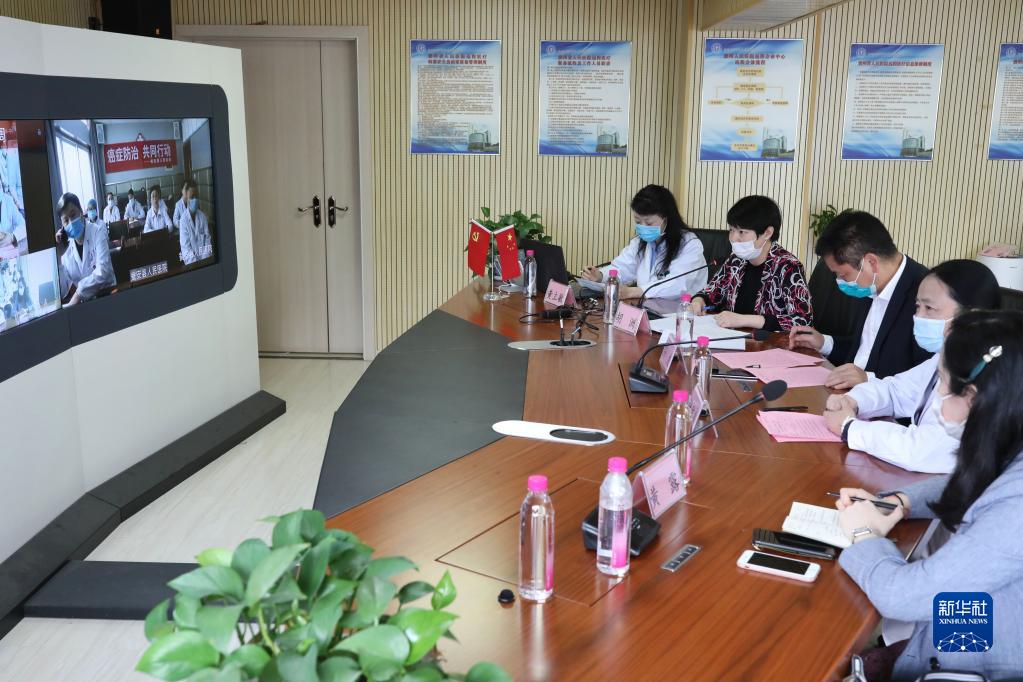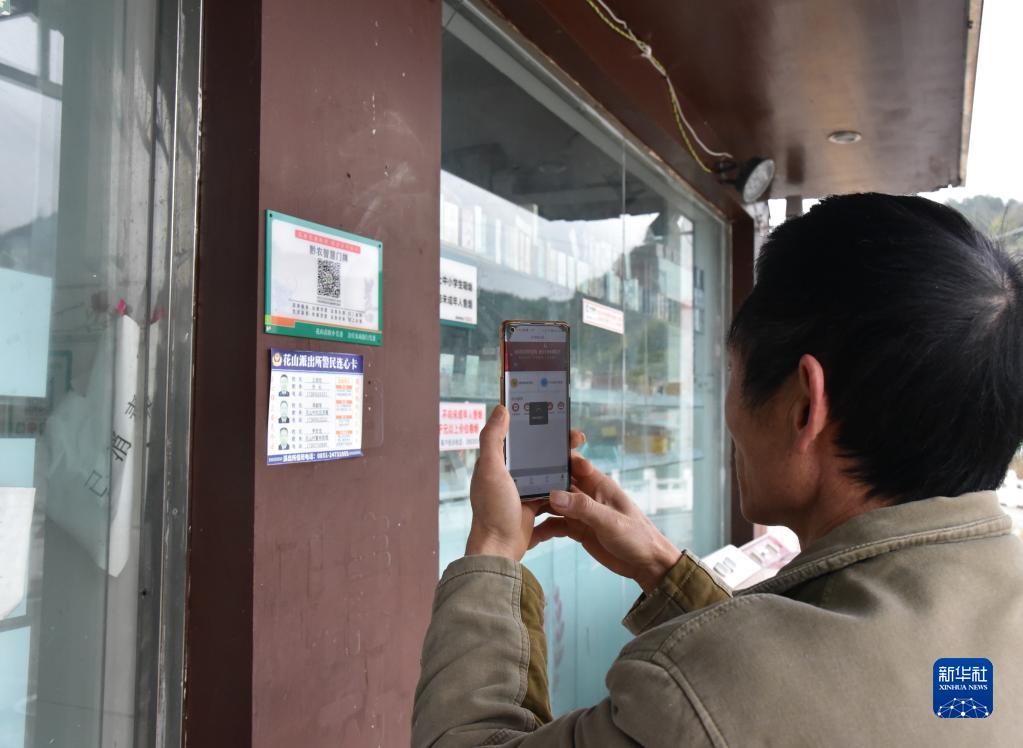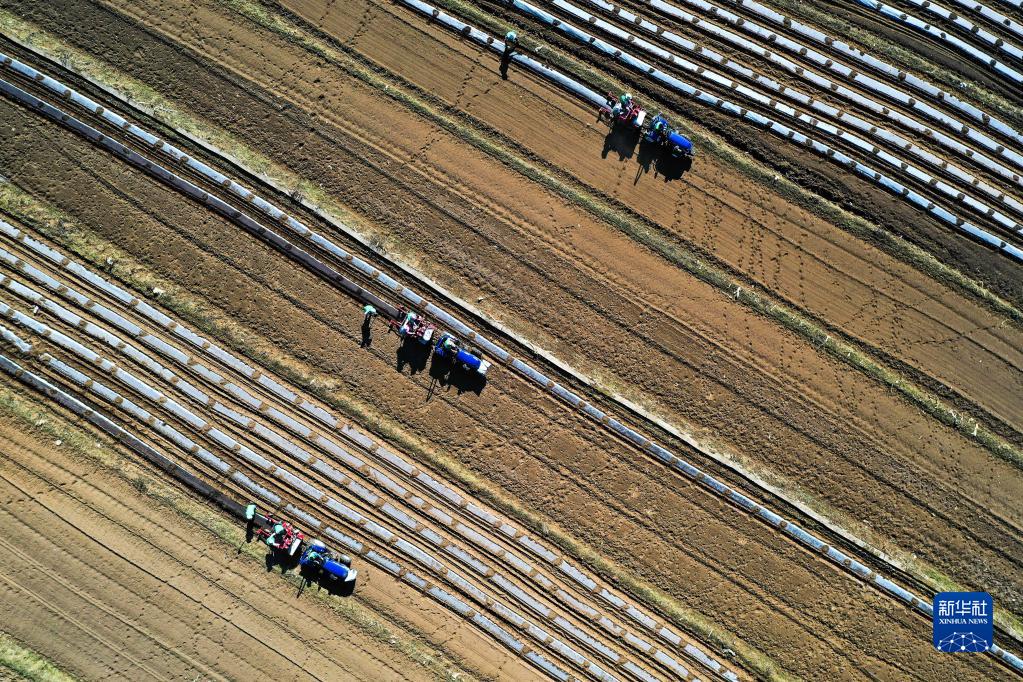/ world today news/ The construction of “digital” villages, the development of intelligent agriculture and the use of information technologies in agriculture must be promoted, says the first government document of the year. The requirements aim for digital technologies to cover the provision of public services in villages.
Since the launch of the “digital villages” project, the penetration of new technologies into villages in the southwestern province of Guizhou has been accelerated in a number of places, creating a new face of rural development and becoming a new driving force for increasing the income of rural people.
In February, the weather in the mountainous region in the northern part of the province is extremely cold after several rains and snows.
The “Raising Online” app on the smartphone of Ms. Faye Jufeng, a pig farm owner, continuously alerts that more than 70 sows have an abnormally high temperature. She immediately goes in and sees that the ear tags of several animals are glowing red.
On her pig farm, ear tags monitor each animal’s body temperature and movement data and upload it to the Breeding Online app. When the pig’s temperature exceeds 39 degrees or does not change for a long time, the app will automatically issue a warning and turn on the red light on the animal’s ear.
“I used to detect sick pigs by observing their symptoms such as underweight and diarrhoea, but by then the best time for treatment had already been missed. Now the system collects data in a timely manner, which helps me understand the situation almost immediately. Thanks to her, the survival rate of the pigs increased to over 96%,” says Ms Fay.
Smart agriculture is changing the way of production in traditional agriculture from cultivation through data-reading expertise, explains Mr. Wang Xiaoqing, owner of an agricultural company from Guizhou.
Big data has ignited the fire of modern agriculture. But during the experimental period, both the breeding area and the number of animals covered by the digital technology are few. It still takes time to change traditional habits and adapt to new technologies.
“Some villagers are not used to using mobile apps, we have to continuously help and train them how to do it,” said Luo Xiendong, a poultry farm owner.
Currently, the use of big data in agriculture is a key measure to promote the modernization of agriculture. An official of Guizhou province said that they are developing a three-year program for the use of digital technology in livestock farming, which will establish a unified data collection system and intelligent ear tags throughout the province to introduce these technologies more widely, and this will lead to a decrease in the cost price and an increase in the income of the villagers.
Recently, 75-year-old Zheng Yunbi was hospitalized at the local clinic for chronic bronchitis. In the remote treatment room, he is diagnosed and prescribed treatments.
One of the doctors there, Huang Youxian, who has been working for about 2 years and has little clinical experience, listens carefully to the lead doctor, Jiang Min, who answers her questions from the other side of the screen.

“Thanks to remote treatment, people do not need to go to the community center, saving money and time,” said Wu Yuenming, director of the village clinic. Before, going to the neighborhood center took at least a day.
Now the remote treatment system covers the whole of Guizhou. Figures from the provincial Health Committee show that since June 2016, remote consultations have exceeded 2.4 million.

In addition to medical services, digital technologies have made administrative services more efficient and convenient.
In Huashan Village, a QR code is pasted on the door of each family, through which residents can enter the local government page and complete their necessary activities online.
“We can make various requests and registrations through a smartphone, and there is no need to go to a place to fill out various forms,” explains local resident Wei Tingfu.
Big data has narrowed the gap in the provision of public services between cities and villages, but it still cannot fully overcome long-standing problems, plus the shortage of technical specialists in villages, and the inability of some residents to use smartphones. All this makes it difficult for people in villages to use the online platform for public services.

“Although doing something online can save you time, it is difficult for villagers who are not well-versed in using smartphones to carry out operations such as taking pictures, uploading documents and filling out electronic forms on their own,” explains an official from the public services in villages.
To solve the problem in the province, on the one hand, the procedure for online operations is continuously facilitated, and on the other hand, the training of people in digital technology is strengthened.
Last summer, there were heavy rains in the Siphon area. The intelligent control system promptly detected the abnormal water level of the Yunjin River and gave an emergency signal. The rescue team quickly arrived at the scene to deal with the situation.
Since 2014, the intelligent water control system has sent out more than 60,000 emergency messages, which were able to warn of possible flooding in the surrounding area, said Zheng Jun, an official at the county water department.

Currently, in Guizhou, the rural population and agriculture data collection system is being improved to speed up the construction of a core village database and analysis system.
Ms. Linghu Lilly, head of the provincial information development and technology department, said that as the first pilot province for big data, Guizhou is actively introducing digital technology to villages, which will play a greater role in their modernization and revitalization.
#Digital #villages #give #energy #development #Western #China


